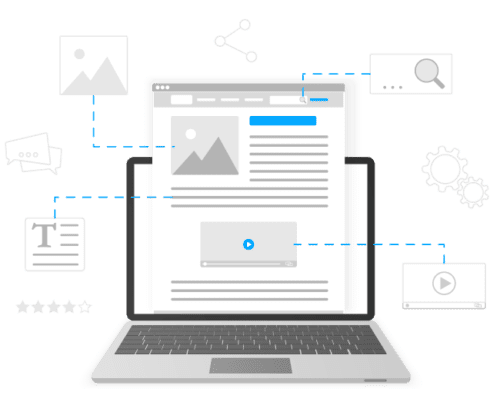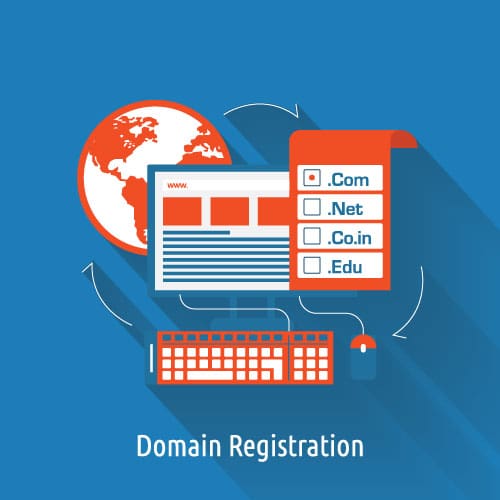In today’s digital age, particularly in Riverview, Florida, having a robust online presence is essential for business success. The web is often the first place people turn to for information about services or products they need. A business’s online presence can be a game-changer, determining whether it thrives or fails. That’s why it’s essential to have a responsive, visually appealing, content-rich, easily maintainable, and user-friendly website.
At Smith Consulting & Design, LLC, we specialize in building websites that incorporate all these elements. Our goal is to attract more visitors, generate interest, and increase clicks, ultimately leading to the conversions your business needs. As a dedicated website builder in Riverview, Florida, our mission isn’t just to create a website; it’s to help you build your business.
Where Should You Start Building Your Business Website?
Every journey starts with a single step, and building a website is no different. Whether you provide a service, sell products, or want to showcase your talents, your journey has already begun. Creating a website to share your journey with the world doesn’t have to be difficult, but it can be challenging without the right expertise. At Smith Consulting & Design, LLC, we simplify this process by presenting clear choices to our clients.
Step 1: Establish Your Business Name – Your business name is the foundation of your online presence.
According to the guidelines set by Google Business Profile (GBP), it is required that a business’s name aligns with the name on its business license or DBA (doing business as) name. Additionally, the name should match the one displayed on the business’s storefront, website, stationery, and other legal documents. It is essential to maintain consistency and accuracy in the representation of the business name across all platforms to ensure a seamless and trustworthy experience for customers. Adhering to these guidelines will help businesses maintain a strong and reliable online presence, as well as uphold transparency and integrity in their operations.
Step 2: Choose an SEO-Friendly Domain – Selecting the right domain is crucial.
Here are some tips:
- Include your company or brand name in the domain.
- Avoid overly long exact-match domain names.
- While a keyword-rich domain isn’t an SEO strategy on its own, it can be beneficial as part of a broader SEO plan.
- Consider adding one or two relevant keywords.
- Keep your domain name brief, interesting, and creative.
- If you have a few domain names in mind, contact us to verify their availability.
Step 3: Secure Website Hosting – Your website needs a reliable home.
When choosing a hosting provider, consider:
- Server reliability
- Uptime scores
- Security
Step 4: Create High-Quality Content
High-quality content on your pages, especially your homepage, will attract users and encourage other webmasters to link to your site.
Here are some content tips:
- Aim for about 700 words per page.
- Use proper hierarchy for on-page SEO.
- Include images (with alternate text), logos, and videos, ensuring they are legally yours and optimized for speed.
Please contact us today and let us get you online, your clients are depending on it!
We understand that these steps can be overwhelming for those not familiar with web development. That’s where Smith Consulting & Design, LLC comes in. We handle all these steps for you, helping to build your business for the digital world. To get started, fill out our proposal form below or email us your vision at info@smithcd.com. Let’s bring your website to life!
For us to start any project, the following will need to be addressed:
- An agreement is electronically signed on what is to be developed.
- 50% of the amount that was quoted to start the work.
- Developing the website will be charged at a $75.00 per hour rate.
- A minimum of 8 hours is needed to set up a WordPress website.
How can your Website work for you?
- Is your business website getting the results you want?
- Do you know how much traffic the website is producing?
- Do you know what keywords users are searching for on Google?
Using a variety of tools, including Google Analytics, and Google Search Console, we can help you get the answer to your questions and more. Setting up your website to collect this data and to use this information to put together a solid plan about how we can improve your website’s overall results, and get better and more website traffic. When getting your website to work for you, we must focus on 5 roles: On-page SEO (Content), Off-page SEO (Links), Technical SEO (optimized, HTTPS, etc.), Local SEO (Google My Business, Google Maps), YouTube SEO (Video Content). This will just be the start, so please, when you want your website to work for you, we must be patient and be sure it’s done correctly and within the guidelines of each search engine.

Is a CMS or HTML website right for your business?
In most cases, the average person does not realize that there are so many options when deciding on a website design. If you are a person that just needs a 1-page website and has a good understanding of HTML and CSS, then maybe having an HTML Page only, is the right choice for you. Just know that Google likes to see new content that is high quality, relevant information being put out on websites for people to find.
We would highly recommend that every site be created so that it is easily updated, easy to change out information that may change over time, and be able to add new relevant content without changing the layout or look of the existing website through posts or a blog. Having a CMS is an easy way to keep your website’s content fresh and new for your users to see. Is your current website not using a CMS (Content Management System), or is it using a CMS that is no longer working for you? A CMS website must be updated regularly, and maybe your website needs such updates. We will sit down over the phone, on FaceTime if needed, or even meet up and chat about a plan to get your website migrated over to a very well-known CMS called WordPress.
A content management system (CMS) is a computer application that supports the creation and modification of digital content. It typically supports multiple users in a user-friendly environment. CMS features will vary, based on the functionality needed for your website. Most CMSs include Web-based publishing, format management, history editing, version control, indexing, search, and retrieval. By their nature, content management systems support the separation of content and presentation. Based on market share statistics, the most popular content management system is WordPress, used by over 28% of all websites on the internet, and by 59% of all websites using a known content management system. Other popular content management systems include Joomla and Drupal. WordPress websites will use plugins to help with the functionality. These plugins will have free versions that will offer a minimum functionality and then they will offer a pro version that will allow you to use 100% of the plugin’s ability. A WordPress website will also give any user the ability to log into a user-friendly dashboard, take control, and change certain information that is set specifically for that user. The administrator will set these criteria for each user.

